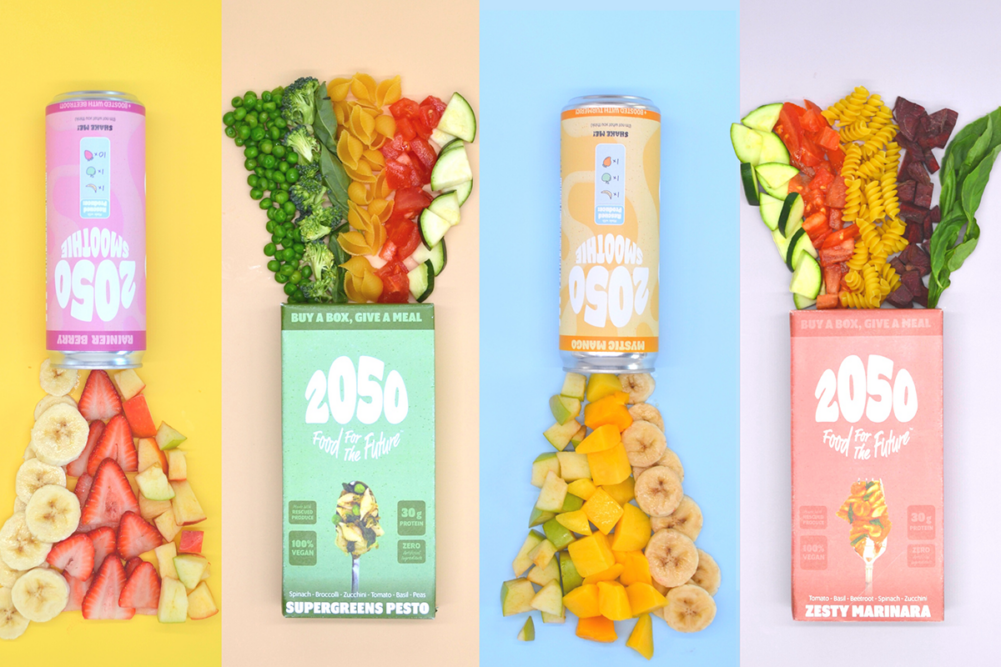SEATTLE — The 2050 Co., a Seattle-based sustainable food startup, has created a crowdfunding campaign on Kickstarter to support the expansion of its product line. The company, which focuses on achieving zero waste, zero hunger and zero plastic by 2050, has developed a range of plant-based pasta dinners formulated with soy protein plus imperfect or surplus vegetables.
The 2050 Co. also offers smoothie mixes made with misfit fruit, which it debuted two years ago after raising more than $40,000 through the Kickstarter platform. The company uses a drying technology similar to freeze drying to remove nearly all the water in fresh produce while retaining the flavor, nutrients and fiber.
The new line of boxed meals includes marinara with tomato, basil, beetroot, zucchini and spinach; macaroni with sweet potato, butternut squash, turmeric, carrots and peas; and pesto with spinach, broccoli, basil, peas and zucchini. The 2050 Co. has partnered with The Outreach Program, a Union, Iowa-based non-profit, to donate meals to families in Tanzania and Ukraine for each pasta box or smoothie sold.
“From the beginning, we’ve wanted 2050 Co. to be more than a smoothie company,” said Austin Hirsh, founder and chief executive officer. “Since The 2050 Smoothie uses rescued fruits, it was a natural next step to create a product that could incorporate high-quality vegetables.”
Additionally, the startup has overhauled its smoothie recipes and is introducing single-serve recyclable aluminum packaging.
“It’s always seemed kind of backward to package sustainable food in single-use plastic,” Mr. Hirsh said. “After a full year of iterations, we’ve finally arrived at a packaging design that’s 100% plastic-free and infinitely recyclable.”
Mr. Hirsh and co-founder and chief operating officer Greg Gibson set a goal to raise $10,000 through the new Kickstarter campaign. Within a week, more than 100 backers had pledged over $20,000 to the project, which may be found at kickstarter.com/projects/2050co/food4future.
“Producing tons of extra food without first addressing food waste would be like pouring water into a leaky bucket without first patching the giant hole in its bottom,” Mr. Hirsh said. “Our long-term goal is to address both waste and hunger by preserving rescued produce and transporting it from areas of surplus to areas of scarcity.”




